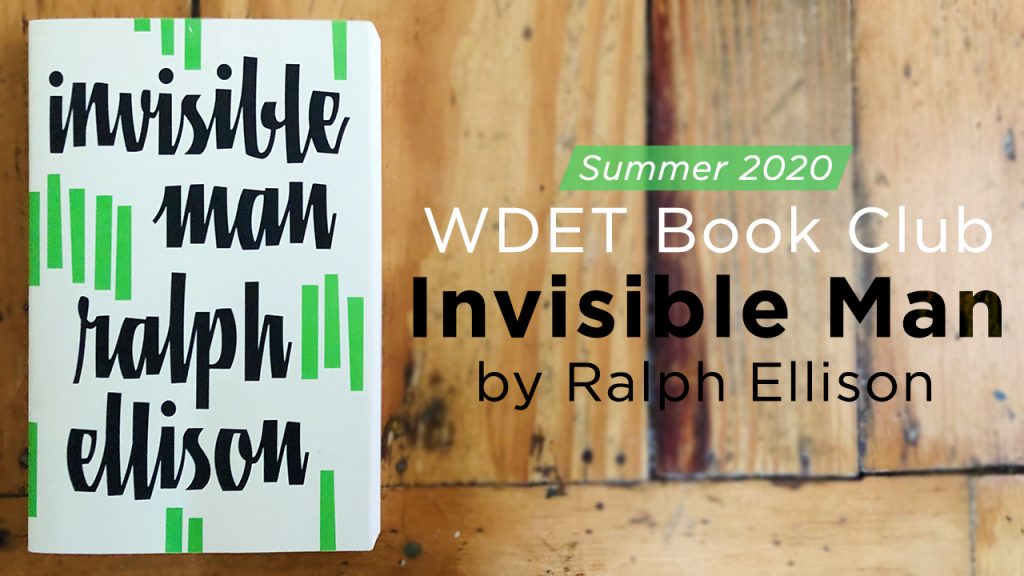WDET Book Club: “Invisible Man,” Black Lives Matter and the Politics of Ralph Ellison
For WDET’s Summer Book Club, Detroit Today listeners will be reading and discussing Ralph Ellison’s “Invisible Man” and it’s legacy today.

WDET’s Book Club is back for a third year, and this summer’s selection is Ralph Ellison’s “Invisible Man,” a formative work of the 20th century and winner of the U.S. National Book Award for Fiction in 1953.
Detroit Today’s Stephen Henderson and readers will discuss the novel weekly on-air and online in the WDET Book Club Facebook community. You can follow along by reading 2 – 3 chapters a week until the end of August. The novel’s interrogation of power, systemic racism and inequality has never felt more urgent or pertinent than it does today.
Listen: “Invisible Man” is Relevant to Black Lives Matter Today.
“Ralph Ellison was an Uncle Tom to some, a literary father figure to others.” — Alan Wald, University of Michigan
Click on the player to hear University of Michigan’s Alan Wald discuss book and the politics of Ralph Ellison.
In this first installment, we speak with Alan Wald, professor emeritus in the Department of American Culture at the University of Michigan, who studies 20th century U.S. cultural leftism.
Wald says that the journey of the titular Invisible Man is reflective of Ellison’s own experiences as a Black man in 20th century America. “The book is a kind of sequence of initiations into roles that were created for African Americans in the 20th century,” Wald says.
Discussion Points
- Wald discusses “the use of myth to distort history in order to see the actual history,” in “Invisible Man,” which he says puts the characters in a position to push against those myths and the societal forces they represent.
- He says Ellison’s discussion of economic issues, like the lasting economic effects of slavery on Black Americans, are still relevant to readers today, and are becoming more prominent as discussions of systemic racism continue. But although the novel deals with many progressive themes, Wald says Ellison was “becoming more moderate” when the book was published.
- “He was not a participant in the Civil Rights Movement, he was not a supporter of Martin Luther King, he did not oppose the war in Vietnam,” Wald says. The novel “benefitted from that changing atmosphere, but his own thinking was not going in that direction. Ralph Ellison was an Uncle Tom to some, a literary father figure to others.”
Keep the Conversation Going
Respond on Facebook to this week’s prompt: In Chapter 1, what do you think the Grandfather’s dying advice means?
“I want you to overcome ’em with yeses, undermine ’em with grins, agree ’em to death and destruction, let ’em swoller you till they vomit or bust wide open…”
Further Listening
Author Colson Whitehead on “The Nickel Boys,” “Invisible Man,” and Racial Inequity
This article was written by Detroit Today student producer Ali Audet.
Trusted, accurate, up-to-date
WDET is here to keep you informed on essential information, news and resources related to COVID-19.
This is a stressful, insecure time for many. So it’s more important than ever for you, our listeners and readers, who are able to donate to keep supporting WDET’s mission. Please make a gift today.
